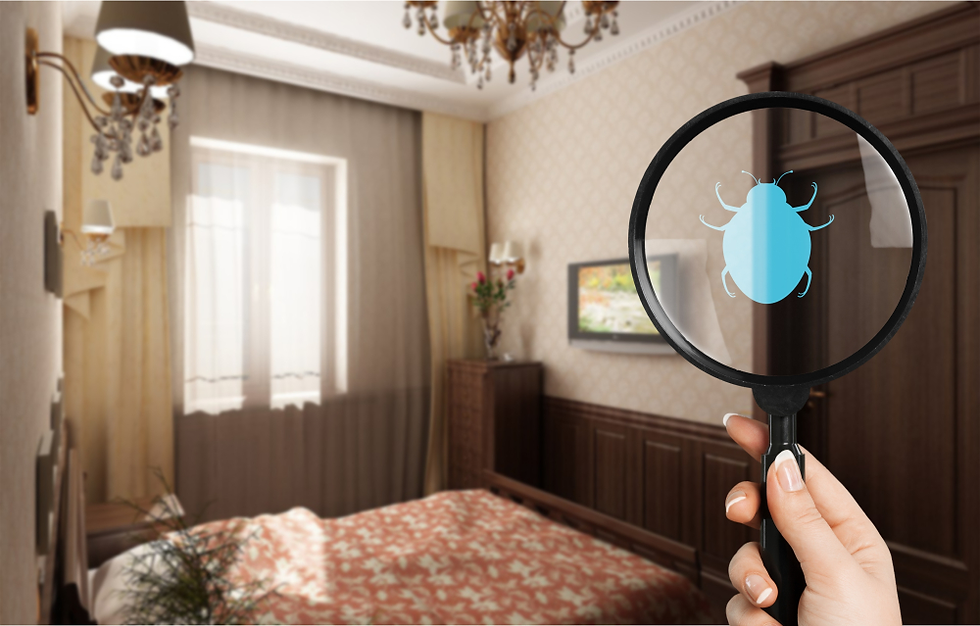Understanding the Environmental Impact of Ducted Reverse Cycle Air Conditioning
- Molly Crowe
- Feb 12, 2025
- 3 min read
Updated: Nov 4, 2025
Has the thought of upgrading your old air conditioning system crossed your mind? Are you not only concerned about the cooling efficiency but also its environmental impact? Welcome to a comprehensive exploration of ducted reverse cycle air conditioning and its ecological dynamics. Air conditioning systems have become ubiquitous in our lives, but as more of us strive towards sustainable living, it’s crucial to scrutinize the environmental influence of these comfort providers.

Ducted reverse cycle air conditioning provides temperature control through ductwork installed throughout the home. In the swelter of summer or the chill of winter, it's a convenient and efficient process though, like any HVAC system, it has potential environmental implications. This blog will delve into those aspects, helping you make an informed choice for your next home improvement project.
Now, let’s delve into the intricacies of this topic, dissect its environmental impact, and uncover potential sustainable solutions, because when it comes to the well-being of our planet, every decision we make matters.
What is a Ducted Reverse Cycle Air Conditioning System?
At the heart of the ducted reverse cycle air conditioning system lies its unique ability to both heat and cool your home, depending on the season. It is not merely any HVAC system; it is a two-in-one appliance that harnesses air from outside to control the indoor climate. But how does it work?
The process relies on a refrigerant to 'reverse' the flow of air, pulling heat from outside to warm the home in winter, and extracting heat from inside the house to cool it in summer. This process, however, requires energy - predominantly in the form of electricity which indirectly contributes to carbon emissions.
The Environmental Footprint of Ducted Reverse Cycle Air Conditioners
When attempting to determine the eco-impact of ducted systems, the primary areas of concern are electricity consumption and refrigerant leaks. Electricity grid supply is still largely powered by fossil fuels, contributing to the release of greenhouse gases. Refrigerants, on the other hand, while vastly improved in recent years, still have the potential to harm the ozone layer in the event of a leak.
The Pros and Cons of Ducted Reverse Cycle Air Conditioning
While the environmental impact of this system does sound alarming, it isn’t all doom and gloom. From a positive viewpoint, these systems are highly efficient, especially if you go for the newer models with high Energy Efficiency Ratios (EER). They use less energy per unit of heat moved compared to traditional heaters, cutting down on electricity usage.
However, on the flip side, these units are still tied to electricity and do have the potential for refrigerant leaks. The challenge lies in balancing comfort, costs, and climate considerations.
Making Your System More Eco-Friendly
Despite the environmental concerns, there are various measures homeowners can undertake to mitigate the ecological impact. Regular maintenance of the system can prevent refrigerant leaks and promote energy efficiency. Using your system in tandem with natural ventilation can also cut down on electricity usage.
The Future of Ducted Reverse Cycle Air Conditioning
Technological advancements are indeed addressing the ecological concerns of HVAC systems. The rise of solar-powered air conditioning and the development of climate-friendly refrigerants promise a future of even more sustainable climate control.
Final Thoughts on the Environmental Considerations
Summarizing our exploration, it's clear that while ducted reverse cycle air conditioning has potential environmental implications, many variables, including maintenance and energy usage, are within our control. Is it worth upgrading your old air conditioning system? Absolutely, if you consider options that contribute to lower carbon emissions, and can maintain the system for optimal efficiency. After all, the future of our planet rests in such informed decisions. Stay tuned for my next write-up where we dive even further into sustainable options for home cooling systems!
Visit Us
Templestowe Heating And Cooling
2-4 Templestowe Rd, Bulleen VIC 3105, Australia







Comments